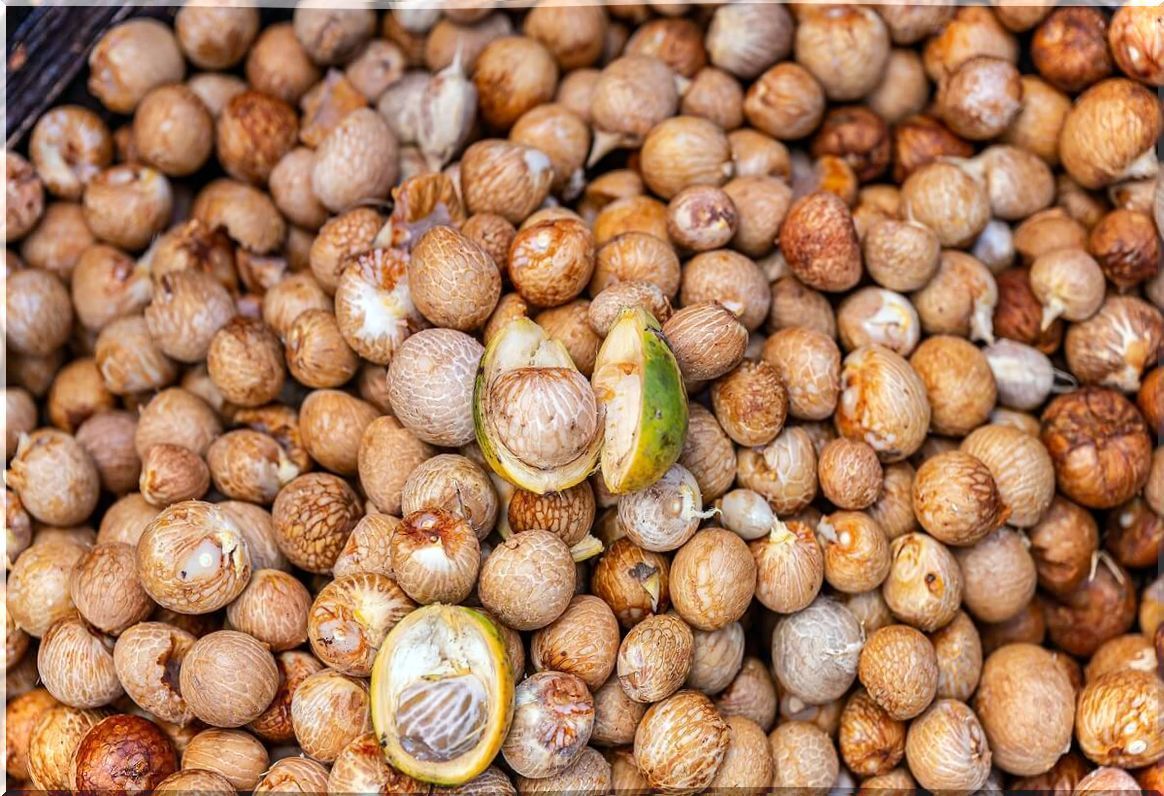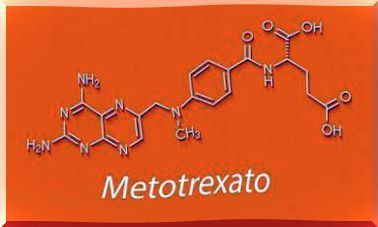Why Is Betel Nut Dangerous?
The consumption of betel nut is related to the appearance of mouth cancer. In addition, other possible health risks have been noted. Do you want to know more about it? Keep reading!

When chewed, it stains the teeth purple or dark red. The betel nut is consumed in many parts of the world, however, the largest buyers are in Asia and the Pacific, where it is from. Those who have tried it say that it can give more energy than a simple cup of coffee.
Also called “areca nut”, it is a seed that comes from the Areca catechu palm tree . They cut it into small pieces or crush it and then wrap it in the palm leaf itself, which is previously covered with lime. There are also presentations that add tobacco or aromatic spices.
However, despite being very palatable to some, it causes dangerous long-term side effects, such as oral cancer, which could lead to premature death. What should you know about it? Next, we detail everything about its possible benefits, contraindications and concerns after its consumption.
Tradition around this nut
Around 600 million people use some form of betel nut, according to the World Health Organization (WHO). This could be translated, that at least 10% of the world population continues with the tradition of consuming betel.
Since it is a practice with more than 2000 years of history, it is not surprising that it is believed to have potential benefits. From generation to generation it has been passed down that chewing betel could help:
- Relieve ailments.
- Reduce the dryness of the mouth.
- Cure indigestion.
- Fight the importance.
Despite this, there are currently no scientific studies that corroborate such benefits. In turn, popular belief suggests that this nut is energetic and can be equivalent to the consumption of six cups of coffee.

What possible benefits does it have?
The conviction behind those who ingest this nut highlights its ability to decrease pain, cure indigestion, and improve impotence. For its part, research conducted by Cancer Prevention Research suggests that the areca nut has abilities to inhibit cancer.
Also, a study by Current Science found that it may have anti-inflammatory and healing properties. It even seems to be an aid against digestive and cardiovascular problems.
Despite this, research, such as that conducted by the South Asian Journal of Cancer, shows that there are no follow-up studies to claim any benefits from areca nut.
For its part, a review of studies published by the Indian Journal of Medical and Pediatric Oncology ensures that there are more side effects of betel nut than those that could be counted as benefits.
Although this food could give an energy boost, due to the natural alkaloids that release adrenaline, the truth is that its benefits need more scientific studies to be supported.
Side effects of its use
According to research conducted by The American Journal of Clinical Nutrition , betel nut may cause metabolic syndrome, cardiovascular disease, and obesity. It is also believed that this nut can cause toxic reactions in the body when ingested with other drugs or herbal supplements.
However, more studies are still needed to find out to what extent this nut interferes with other medications. In most cases, it is associated with conditions such as gum irritation and cavities. Another of its disadvantages is its possibility of permanently staining the teeth a black or intense red color.
Possible relationship with mouth cancer
The World Health Organization (WHO) has listed the areca nut as a carcinogenic fruit. Even many scientific investigations support the relationship of this nut with cancer of the esophagus and mouth.
According to a review of studies by the Journal of the American Dental Association , addiction to betel nut increases the risk of developing oral submucosal fibrosis. Condition that currently has no cure, which causes stiffness in the mouth and, in some cases, loss of mobility in the jaw.

Betel nut addiction concern
The concern of health experts is that the betel nut has shown signs of causing dependency and withdrawal symptoms. According to the Food and Drug Administration (FDA), this nut cannot be considered safe to ingest or chew, it has even been classified as a poisonous fruit.
When linked to tobacco, it could increase the risk of medical conditions, such as the following:
- Addiction.
- Oral submucosal fibrosis.
- Oral cancer
- Low weight in neonates.
The World Health Organization (WHO) in conjunction with other countries have adopted measures to raise awareness of the use of betel nut. Policy, community outreach and public awareness campaigns are some of the measures taken by the 2012 action plan by WHO in the Western Pacific.
For its part, Taiwan has declared Areca Nut Prevention Day; In some parts of that country, officials even fine any citizen who dares to spit the juice of the betel nut and must attend abstinence courses.
What to remember about the betel nut?
The betel nut is a fruit from the Areca catechu palm tree. Some cultures claim that this nut has benefits. The practice of consuming it dates back 2000 years. It is addictive and provides a greater energy boost than several cups of coffee.
However, today, modern science has tried to bring awareness to its consumers. This is because it is harmful to health and is associated with several conditions. The strongest – and the one that has caused premature death worldwide – is oral cancer.
Other adverse effects include an increased risk of cardiovascular disease, metabolic syndrome, gum irritation, obesity, and tooth decay. Chewing betel nut frequently can permanently stain your teeth a deep red or purple.









